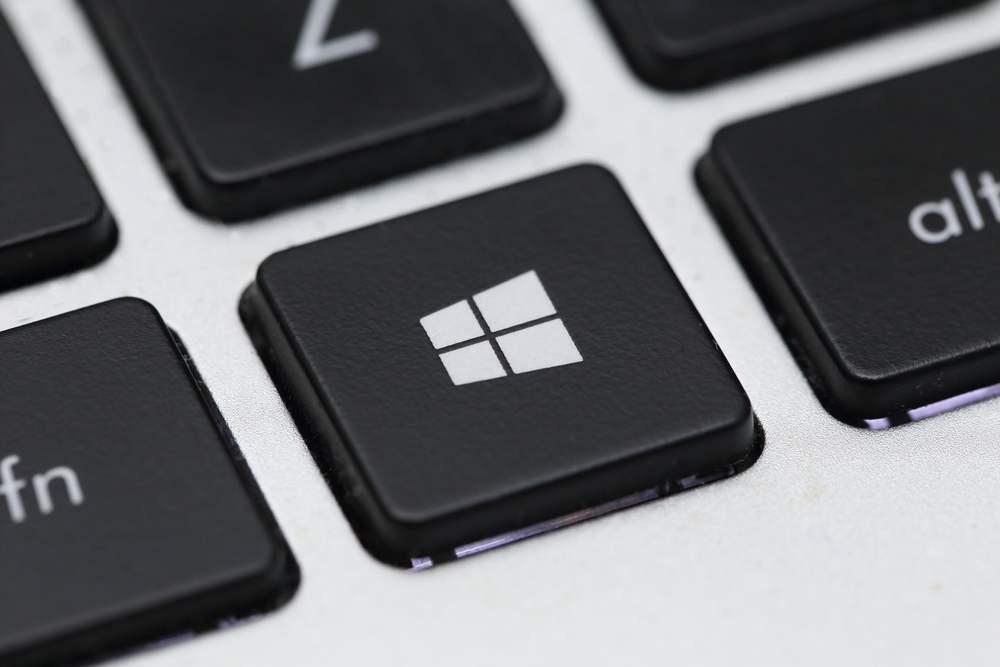
Windows 10 Insider Preview Build 14372 for PC and Mobile arrives on the Fast ring
Windows 10 Insider Preview builds are coming thick and fast now in preparation for the Anniversary Update on 29 July.
We had a new build on Tuesday (Build 14371), and today Windows Insider chief Dona Sarkar has pushed the button on another new release -- Build 14372 for PC and Mobile. That’s just one build newer, but includes fixes designed to improve overall performance and reliability. But that’s not all.

DevOps can help bridge the gap between software companies
High-performing organizations are widening the gap against low-performing ones, a new report on DevOps suggests. Entitled 2016 State of DevOps Report, it was released by Puppet and DORA (DevOps Research and Assessment), and is considered one of the largest, most comprehensive and longest-running studies on the topic of DevOps.
High-performers deploy 200 times more frequently and have 2,555 times faster lead times. They recover 24 times faster from failed changes and have three times lower change fail rates. The report also said high-performers spend 22 percent less time on unplanned work and rework, and are able to spend 29 percent more time on new work.

Samsung unveils 'Notebook 7 spin' convertible Windows 10 laptop
Samsung is probably best known for its Android smartphones and tablets nowadays, but the company is so much more. It makes amazing televisions, plus appliances like refrigerators and washing machines. Samsung even makes Windows laptops and tablets, such as the 2-in-1 TabPro S.
Today, Samsung unveils the all-new 'Notebook 7 spin' laptop. This convertible Windows 10 computer can double as a tablet -- the touch screen can rotate and sit flush on the rear. It even has a backlit keyboard by default -- nice. Best of all, the pricing is rather competitive.

Google's free Android Basics Nanodegree helps you learn how to code
Google wants more people to make Android apps, so it has teamed up with Udacity to create a new program aimed at aspiring developers. Called Android Basics Nanodegree, it offers a series of courses and services that will teach students, with little to no coding experience, how to make their first Android app.
"The courses walk you through step-by-step on how to build an order form for a coffee shop, an app to track pets in a shelter, an app that teaches vocabulary words from the Native American Miwok tribe, and an app on recent earthquakes in the world. At the end of the course, you will have an entire portfolio of apps to share with your friends and family", says Google.

'No-cloud' policy to soon go extinct
Within the next four years, the extreme "no-cloud" policy among businesses will be as rare as "no-internet" policy is today, Gartner predicts.
By 2020, however, not everything will be cloud-based, but companies having absolutely nothing in that respect will be almost extinct.

90 percent of Android devices vulnerable to Godless malware
When we take a look at the Android distribution updates that Google posts every month one thing seems to never change, and that is the overwhelming number of devices that run an outdated version of the operating system. As of early-June 2016, nearly 90 percent of the handsets with Google Play access are rocking Lollipop, Jelly Bean or another old distribution. Meanwhile, Marshmallow powers only 10.1 percent of Android devices.
And, as Trend Micro security researchers point out, that can be a serious problem in terms of security as there is a new family of malware, known as Godless, that affects "virtually any Android device running on Android 5.1 (Lollipop) or earlier". Using Google's figures, that's 89.9 percent of the Android handsets in use. What's really worrying is that this malware is actually linked to apps available in major app stores, like Google's Play, and it has already made 850,000 victims across the globe.

Why can't 'no' just mean 'no' when it comes to free software?
As we’ve reported numerous times before, and with increasing levels of frustration, Microsoft won’t ever seem to take no for an answer when it comes to Windows 10. When the Get Windows 10 app appears to users of Windows 7 or 8.1 they might reasonably expect to have the choice of saying "yes" or "no" to the free upgrade offer. Except while "yes" means "yes", "no" apparently means "yes, but you’ll need to trick me into installing it".
It’s not just Microsoft which pulls this kind of stunt either. This is a recent experience I had when installing Auslogics Disk Defrag.

How mobile device management could be invading your privacy
Many companies now turn to mobile device management (MDM) to control and monitor their employees' mobile use. But a new study from data protection company Bitglass reveals that MDM itself represents a threat to privacy.
Bitglass researchers configured MDM software to route mobile data traffic through a corporate proxy and installed corporate-issued certificates on employee devices to decrypt SSL traffic. This, a common configuration in enterprise MDM deployments for inspecting traffic for malware, enabled researchers to see the contents of employees' personal email inboxes, social networking accounts and even banking information.

Edit and analyze written content with Word Doctor
Word Doctor’s developer says it’s a word editor and writer’s aid, "designed to analyze both writing content and style". At first glance, that seems hard to believe, because the editor looks only marginally more powerful than Notepad. But start exploring and you’ll begin to change your mind.
Type or click a word, for instance, and an instant definition appears in the status bar ("word -- noun -- a unit of language"). Select a word, right-click, and there’s a synonym finder, a more detailed definition, even an audio pronunciation guide.

Docker Engine will get built-in container orchestration
During its developer conference in Seattle this week, Docker announced that container orchestration will now be built right into its Docker Engine, making the process of building, deploying and orchestrating containers far easier for its users.
The company has basically taken the core features of Docker Swarm and Compose and has added them to its core Engine to simplify the process of using containers in production. Both of these standalone products only recently exited their beta phases last November and it is impressive that Docker has been able to add them to Docker Engine in such a short period of time.

Capture, upload and share screenshots and text with Image DeCap
There are hundreds of screen capture tools for Windows, covering just about every possible need and situation. Do we really need any more? Well, maybe not, but Image DeCap has just enough interesting and unusual features to deserve a closer look.
Captures can be quick and easy. Press a customizable hotkey, hit Enter, and you can save the current screen or window locally, copy it to the clipboard, upload it to Imgur or your own FTP site.

Crypto-ransomware attacks increase five fold
Ransomware has become a big problem in recent years, particularly crypto-ransomware, which encrypts data on users' systems. New research by Kaspersky Lab looking at how it’s evolved over the last two years points to just how big.
Among the findings are that the number of users attacked with crypto-ransomware rose 5.5 times, from 131,111 in 2014-2015 to 718,536 in 2015-2016. The total number of users encountering any type of ransomware between April 2015 and March 2016 also increased by 17.7 percent compared to the period April 2014 to March 2015.

Check your privacy settings -- Facebook is (probably) sharing your employment history
Somewhat out of the blue, Facebook has decided to change the way it displays certain information on your profile. Not content with showing your current place of work -- whether this is real, or some clever pun you've engineered -- it now also shows your employment history.
This is not a direct change to privacy settings as it does not make public anything that had been previously set to be private. It does, however, broadcast your previous places of work to people looking at your profile. You might not like this. You might want to do something about it.

Millennials would trust tech companies with money transactions
There’s a new report suggesting that banks need to seriously consider innovating, if they don’t want to hand over their business to tech companies.
The report, entitled "Are Banks Losing The Innovation Game?", was released by financial regulatory framework compliance experts, Neopay. It is based on a poll of 2,000 UK adults on their experience with high street banks and tech companies.

A win for privacy: Senate blocks FBI from gaining warrantless access to browsing histories
A Senate amendment brought forward by John McCain that would have given the FBI the right to browse suspects' phone and internet records without a warrant has been narrowly defeated.
The vote very nearly went the other way -- there were just two votes in it when the counting was over. McCain had hoped that pushing the amendment as a counter-terrorism tool (particularly against "non-U.S. citizen 'lone wolf' attackers") would be enough to get the required 60 votes. But it seems that the Orlando shooting that McCain cited as an incentive for the changes was not enough to convince others.


